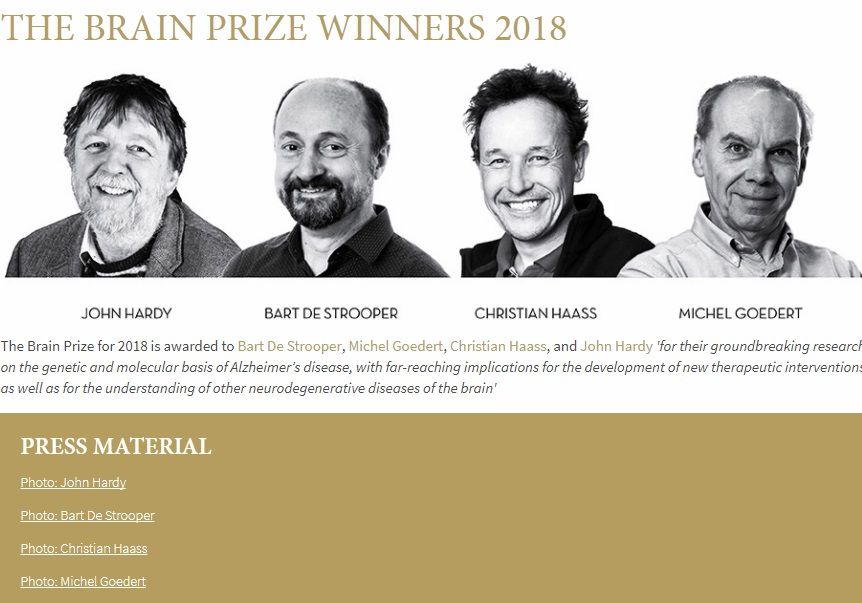Four researchers – Baart De Strooper (Belgium), Michel Goedert (Luxembourg), Christian Haass (Germany) and John Hardy (UK) – have been awarded the noted Brain Prize award for their critical work on Alzheimer’s disease.
The Brain Prize, which is awarded by the Danish foundation Lundbeckfonden, recognises essential advances within the area of neuroscience and has a 1 million euro research prize attached.
“The research of the four prize winners has far-reaching perspectives for our understanding not only of Alzheimer’s disease but of other dementia disorders too,” said Professor Anders Björklund, the head of Lundbeckfonden’s selection committee.
“Their research has provided a foundation for the design of drugs to counter the pathogenic processes. This gives us hope that we will be able to slow Alzheimer’s and perhaps even prevent it.”
READ MORE: Relatives of dementia sufferers often buckle with stress and depression
Spike on the way
There is currently no cure for Alzheimer’s, only medication that can put a damper on the symptoms. However, the four winners of the prize have helped pave the road for better treatment and possible prevention in the future.
Alzheimer’s is considered one of the most expensive diseases in the world to treat – in Denmark alone, dementia-related illness costs over 20 billion kroner annually.
The prevalence of Alzheimer’s is expected to triple over the next 30-40 years.
DTU innovation hub praised
EnergyLab Nordhavn, one of the lynchpin projects of the Technical University of Denmark (DTU), was awarded the 2018 Energy and Environment Prize last week. EnergyLab Nordhavn was praised for its innovative approach to developing the intelligent and integrated energy systems of the future. The solutions being developed in Nordhavn can be copied and utilised in many cities across the planet. A total of nine PhDs and four postdocs are attached to the project, which is supported by the EUDP and led by the Centre for Electric Power and Energy, DTU Elektro.
A bridge no more
An error has led to a protected bridge being torn down and replaced in south Jutland. Fiskebæk Bridge, which was located south of Toftlund and was over 200 years old, was listed as protected, but that didn’t stop a construction team tearing it down and replacing it with a big PVC pipe that instead leads Fiskebæk brook under the road. The engineering firm responsible for the renovation said it had looked into whether the bridge was protected but was under the impression it was not. Meanwhile, Tønder Municipality has admitted that a mistake had been made “somewhere down the line”. The municipality still has the remains of the historic bridge in its possession.
Danish aqua assistance to Cape Town
As Cape Town continues to struggle with a water crisis, Denmark has agreed to send a technical advisor to the South African city to help it switch its water supply to ground water. In Denmark, 100 percent of the water supply comes from ground water sources, compared to just 15 percent in South Africa. Should South Africa follow the Danish model, it could significantly reduce the risk of water shortages during future drought periods. The Danish contribution is a result of a government co-operation that has existed since 2016 and entails providing knowledge and expertise about ground water, water waste, efficiency in industry and the financing of the water sector.















